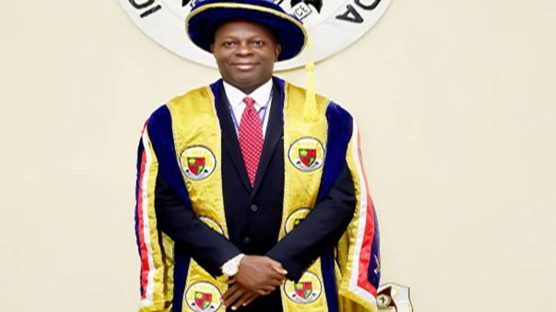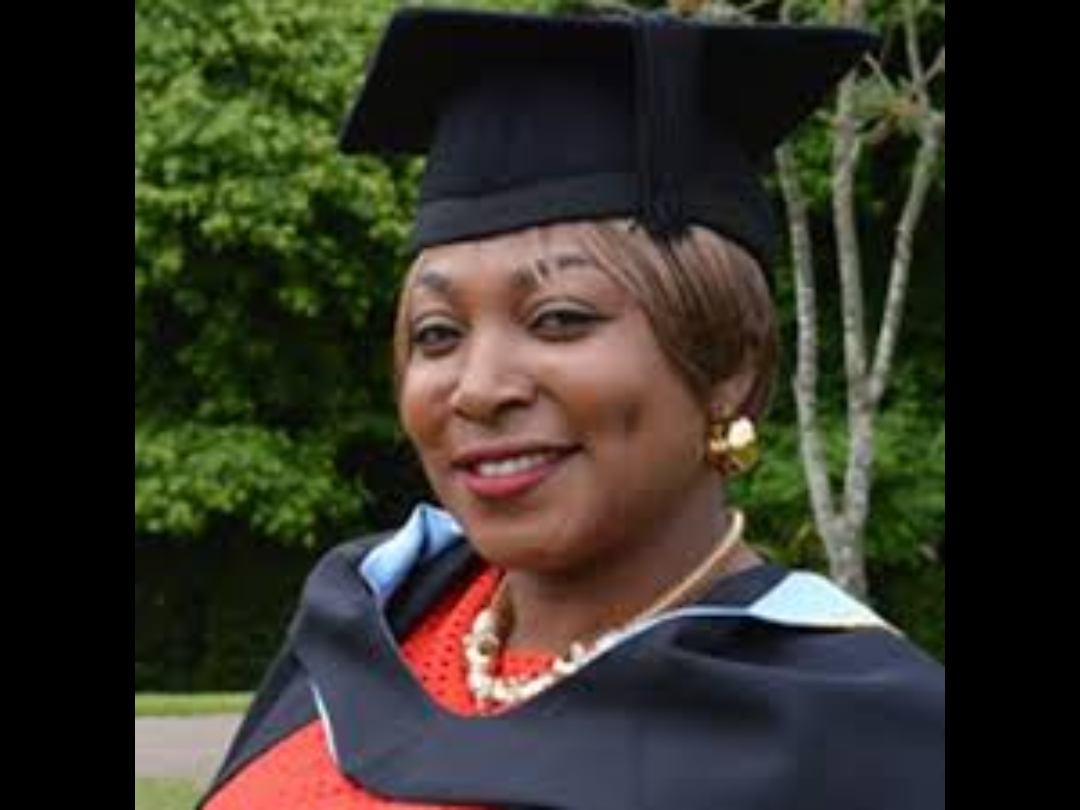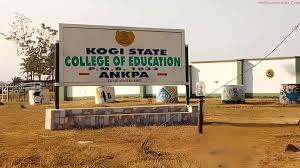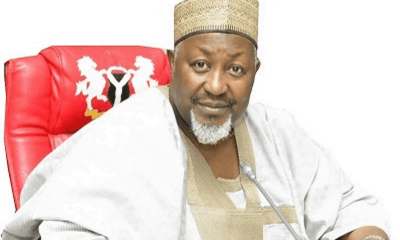Education
Igbinedion VC reveals varsity’s effort to curb brain drain in Nursing

Prof. Lawrence Ezemonye, stated this in his address at the 7th professional oath taking/induction ceremony for 16 graduates of Bachelor of Nursing Sciences of the institution.
The vice-chancellor described as worrisome, the growing demand for qualified nurses in many regions of the world against the backdrop of the shortage of the professionals arising from the brain drain syndrome.
This, he noted, was affecting the healthcare delivery system in the world, including Nigeria.
He asserted that since the advent of modern medicine, nurses’ role had shifted from being comforters to modern healthcare professionals, who provided evidence-based treatment and wellness education.
“Nurses have a multifaceted role as holistic caregivers, patient advocates, specialists and researchers.
Read Also: 2,246 Nigerians Evacuated From Sudan – NiDCOM
“Incidentally, the demand for qualified nurses is growing in many regions worldwide, particularly in light of nursing shortages exacerbated by the brain drain syndrome amongst medical professions.
“To address this need, Igbinedion University’s College of Health Sciences and the Department of Nursing Science have been in the forefront of training skilled graduate nurses who are contributing their quota to the nation’s healthcare delivery system,” said Ezemonye.
Prof. Emon Duke, former chair, National Association of Nigerian Nurses and Midwives, delivered the induction lecture, entitled “Nursing Informatics and Information Technology: A Contemporary Trend in Nursing Practice, Administration, Education and Research”.
Duke, who stressed the importance of Informatics in modern nursing practice in the world, described it as “the use of information technology that helps the nurse to process, manage, store and retrieve the information for providing safe and efficient patient care”.
She urged the inductees to develop a positive attitude towards use of technology to maximise productivity.
The don said electronic health records, which nursing informatics encourages, was needed to overcome the weakness of paper records.
In his remarks shortly he administered oath-taking for the inductees, Prof. Faruk Abubakar, the Registrar, Nursing and Midwifery Council of Nigeria, advised the new nurses to always function independently and collaboratively with other health professionals in the line of their duties.
Abubakar, who was represented by the Port Harcourt Zonal Officer of the council, warned them against breaching the conduct and ethics of the profession. (NAN)
Education
Educationist Advocates Strong Monitoring Structure for IDP Education

A lecturer at the University of Southampton, UK, Dr Vivienne Rwang has called for the establishment of monitoring structures to strengthen the implementation of Nigeria’s Universal Basic Education (UBE) policy for displaced populations.
Rwang made the call on Tuesday during a virtual seminar themed, “Improving Educational Access and Quality for Displaced and Marginalised Learners in Nigeria: A Policy and Practice Approach”.
It was hosted by the Southampton Education School, University of Southampton, UK.
She said findings from her academic study revealed the severe challenges faced by internally displaced children in accessing quality basic education in camps across North Central and North East Nigeria.
“Education is more than a right; it is a tool for stability, healing, and hope. We owe these children that much,” Rwang stated.
Citing global statistics, she noted that Sub-Saharan Africa accounts for 46 per cent of conflict-induced displacement worldwide, with Nigeria representing a significant portion due to prolonged insurgency and communal violence.
Rwang called for urgent reforms to Nigeria’s UBE framework, including the formal recognition of IDP camps by federal and state governments, dedicated education budgets for displaced children, and curriculum reforms in teacher training to integrate emergency education.
She further advocated for free education for IDP children, including the waiving of Parent-Teacher Association (PTA) fees, and the provision of uniforms and learning materials.
“In spite of Nigeria’s UBE policy mandating free and compulsory basic education, many IDP children remain excluded,” she said.
According to her, many IDP camps lack functional schools, while displaced children who attempt to enrol in neighbouring schools often face rejection, high fees, or non-absorption due to overcrowding or lack of documentation.
She also highlighted the shortage of trained teachers capable of addressing the psychosocial and educational needs of traumatised children, noting that most IDP schools operate without special budgetary allocations.
“Teachers working in and around camps often lack the training, motivation, and resources to meet the needs of displaced learners.
“Without education in emergency training, we risk losing an entire generation, ”Rwang added.
In her keynote address, Prof. Nana Tanko, Co-founder of the African Policy Research Institute, called for urgent action to support the education of children in conflict-affected states.
She stressed that collective efforts are needed to lift them out of their current circumstances.
Deputy Vice Chancellor, University of Jos, Prof. Rahila Gowon alongside other academics from the institution, also emphasised the need for a complete overhaul of Nigeria’s education system to better accommodate marginalised learners.
Also speaking, Simon Katu, Assistant Director of Disaster Risk Reduction at the National Emergency Management Agency (NEMA), advocated for the integration of education in emergencies into national and state disaster management frameworks.
He said this would help institutionalise the Safe School Initiative and ensure more consistent interventions.
Rwang’s research is titled “Quality Basic Education and Provision for Internally Displaced Children in Internally Displaced Persons Camps: A Case Study of IDP Camps in North Central and Northeast Nigeria”.
It was motivated by her volunteer work in IDP camps and findings from her master’s dissertation on public primary education in the Federal Capital Territory (FCT).
Representatives from the Universal Basic Education Commission (UBEC), International Organisation for Migration (IOM), Hope for All Foundation, Lovatt Foundation, and various school administrators also participated in the seminar.
Education
Philanthropist Olusoji Approves Full Scholarship for 100 Kogi COE Students

The act of generosity displayed by Asiwaju Prince Olatunji Olusoji, the Bashorun Akinjagunla of Ogidi, has not only put smiles on the faces of 100 students at Kogi State College of Education (Technical), Mopa, but has also earned him recognition as a key partner and friend of the institution.
He offered full sponsorship to 100 students of the institution, covering tuition and accommodation for the three-year academic programme.
The gesture was met with gratitude and appreciation from the Provost of the College, Dr. M.K Ibrahim, and the State’s Commissioner for Education, Hon. Wemi Jones.The College Provost particularly appealed for further partnerships, including an educational endowment and support for the construction of a College Clinic, which Prince Olusoji graciously agreed to consider.
For his part, Commissioner Jones commended the philanthropist for his dedication to educational advancement and community development, emphasising the government’s commitment to the growth of Kogi State College of Education (Technical), Mopa.
Prince Olusoji’s immediate approval and release of funds for the scholarship, as well as his pledge to assist with the clinic project, demonstrated his strong belief in the power of education and the importance of giving back to the society.
As a token of appreciation, the Provost and the Education Commissioner decorated Prince Olusoji as a ‘Friend and Partner of the College’, solidifying his status as a valuable ally in the pursuit of academic excellence and holistic development.The generous gesture of Asiwaju Prince Olatunji Olusoji serves as a shining example of how individuals can make a significant impact on the lives of others through acts of kindness and philanthropy. His commitment to supporting education and community welfare is a beacon of hope for the future generations of Kogi State and beyond.
Education
NYSC DG Tasks Corps Members on Patriotism, Selfless Service Others

The Director General of National Youth Service Corps (NYSC), Brigadier General Olakunle Nafiu has advised Corps members to allow the core values of the scheme be their guiding principles during and after their service year.
He said patriotism, integrity, efficiency, transparency, consistency, loyalty, discipline, diligence, selfless service among others are necessary requirements for a successful service year.
General Nafiu disclosed this while addressing the 2025 Batch ‘A’ Stream Two Corps members at the Cross River State Orientation Camp in Obubra and Ebonyi State Orientation Camp at MacGregor College,
Afikpo, a statement by the acting Director Information and Public Relations, NYSC, Caroline Embu, said on Sunday.
He said every Corps member must adhere strictly to the scheme’s bye-laws, constitution of the country and also respect constituted authorities.
“Be at your best at all times. Be diligent and punctual at work, don’t be lazy and serve as our good ambassadors,” the DG said.
The NYSC Cross River State Coordinator, Joke Oyenuga in her camp situation report informed General Nafiu that 1,455 Corps Members consisting of 675 males and 780 females took the Oath of Allegiance, which was administered by the High Court Judge of Obubra, Hon. Justice EA Ubua during the swearing-in ceremony.
She added that “the morale among the staff and Corps Members is very high and they were all committed to getting the best results.”
Similarly, the NYSC Ebonyi State Coordinator, Foluke Oladehinde said 1,525 Corps members comprising 765 males and 760 females were registered while the Oath of Allegiance was administered by Hon. Justice Nicholas Nwode on behalf of the Chief Judge of the State.































